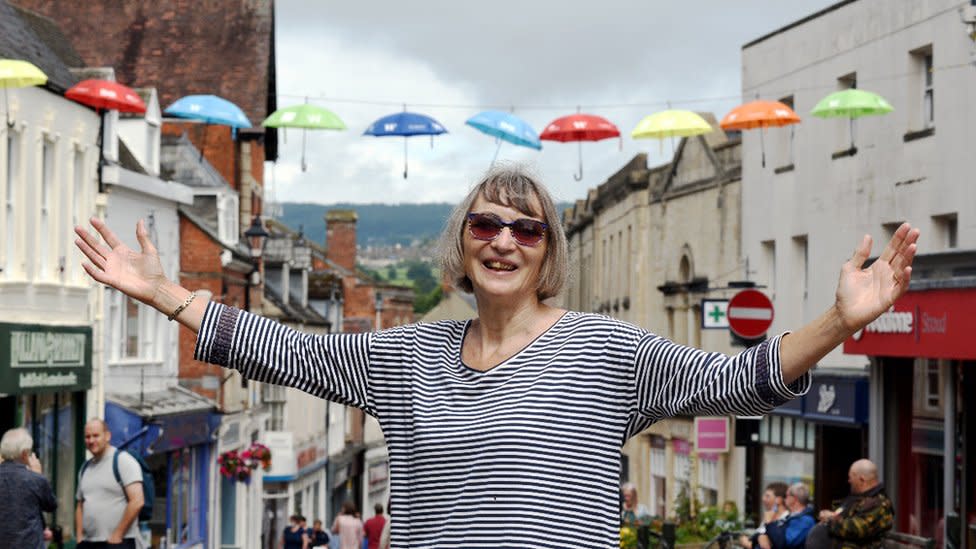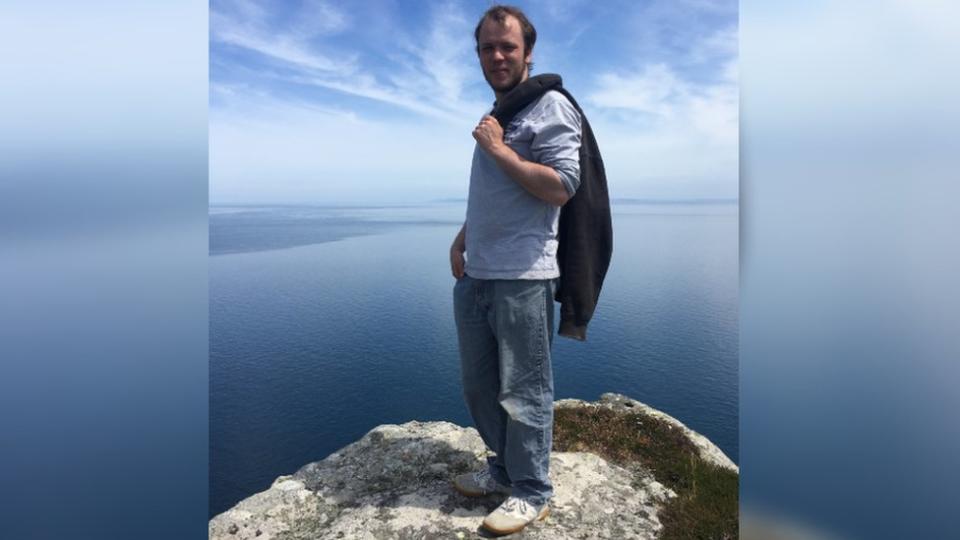ADHD: Bereaved Stroud mum wants to help young people

A mother is working to help other neurodiverse young people in memory of her son.
Jane Roberts is personally funding a three-year project offering support and training in Gloucestershire.
Her son, Ben Brimley, struggled with the challenges of living with Attention Deficit Hyperactivity Disorder (ADHD) and eventually took his own life.
Ms Robert says she wants to make Gloucestershire England's most "neurodivergent-friendly" county.
She has joined forces with the ADHD Foundation to provide experts to work with young people aged 11 to 24 and to offer training to youth workers.
Ms Roberts, from Stroud, has helped created the Gloucestershire Neurodiversity Youth Project, alongside the foundation.
She says she will also work with organisations like The Music Works, ADHD Hub, The Door and Active Impact to embed a culture of understanding and celebration of neurodiversity in the county.
'Struggled in school'
She said she first became aware of Ben's ADHD symptoms when he was in school.
"When he was six, his teacher suggested he might have Attention Deficit Hyperactivity Disorder," said Ms Roberts.
"He struggled at senior school. People with ADHD mask their symptoms - which is terrible for their self-esteem. He dropped out of sixth form, and started taking drugs.
"He was officially diagnosed at 17, but [by then] a lot of the damage had been done," she added.
Mr Brimley eventually had a "psychotic episode" due to the drugs, Ms Roberts said.
He tried to start different careers as a chef, a gardener and working with fine furniture but found them hard to follow through.

"Ben never had the benefit of going to a support group. He really wanted to be independent, financially, and move properly into adulthood, but just couldn't. He gave up, lost hope, lost all his self esteem," she said.
Mr Brimley took his own life in 2020, when he was 30. Ms Roberts says her deep personal loss made her want to help others.
"After Ben died, I realised the root cause of the struggle was ADHD," said Ms Roberts.
"We'd set some money aside to buy him a house so decided to help other young people with ADHD - I want to see people understand ADHD, help people get a diagnosis, and run support groups to help them come to terms with it and find the positive side."
'It's not in their genes'
Dr Tony Lloyd, CEO of the ADHD Foundation, told the BBC that children with ADHD and autism are at a "significantly greater risk" of having anxiety, depression, eating disorders and suicidal thoughts - but that these are "not a given".
"It's not that it's in their genes," Dr Lloyd said.
"It's usually a product of the fact these children have faced a lot of discrimination and isolation."
Dr Lloyd said that children with ADHD are made to feel like they don't belong in school "from a very early age", which he said can cause further problems.
'Statistics are unhelpful'
However, he feels suicide statistics for those with ADHD are "unhelpful" due to the proportion of people who go undiagnosed.
"In terms of the data, we know 11 per cent of children with ADHD have suicidal ideation," he said.
"But we don't know the true picture because we don't even diagnose 75 per cent of people who have ADHD.
"There are now some support groups in Gloucestershire and, in the next three years, this project that Jane is funding is going to be about developing skills and expertise in all the different agencies that work with young people in Gloucestershire.
"All the research has shown that, the earlier we identify - the earlier we put support in place - then the life chance trajectories are better."
If you have been affected by any of the issues raised in this story you can visit BBC Action Line.
Follow BBC Gloucestershire on Facebook,X and Instagram. Send your story ideas to us on email or via WhatsApp on 0800 313 4630.

